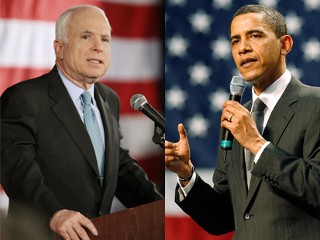
Since I’m a veteran of a high school varsity debate team, I have a perspective on debates that many may not have. It doesn’t make me an expert, but it does qualify me to have an opinion. Here’s how I saw it.
A commanding, personal presence counts for far less in a real debate than the ordinary person may think. This may be a primary reason why the U. S. Supreme Court requires parties to file written brief, called certiorari before hearing oral arguments in front of the nine justices. According to Wikipedia, “When the Court grants a cert petition, the case is set for oral argument. At this point, both parties file briefs on the merits of the case, as distinct from reasons the parties may urge for granting or denying the cert petition. With the consent of the parties or approval of the Court, amici curiae may also file briefs.”
Because of this, I pay little attention to the looks, the demeanor, the composure or even the eloquence of a debater. I was trained to tune out these extraneous factors and listen very carefully to the definition of terms, the logic of the arguments advanced, the specific relevance and credibility of the evidence cited and the force of the overall case made. I ask these pointed questions: did the debater prove the need, did he present a workable plan, did he prove the benefits of his plan, and did he convince me that he absolutely knew what he was talking about?
First, as to my general sense of the exchange, I came away from the first presidential debate between John McCain and Barack Obama with a clear conviction that one knew what he was talking about and the other knew how to make a good impression. I feel secure with one being at the helm of the most powerful nation in the world, but I have deep reservations and nervousness about the other operating as my Commander-in-Chief. I felt my trust solidified as one put the building blocks of his case together; I felt my mistrust growing as I heard the other piece together his talking points with smooth bridges and contrived connections.
One gave convincing arguments that made sense. The other used all the right terms, but spliced them together in hollow and scripted ways. One cited evidence with great detail which demonstrated his familiarity with his material and his insight into the real situation on the ground. The other handled his material as though he were reading from a hastily acquired library book or an encyclopedia article. The one spoke from experience of visiting foreign countries and interacting with heads of state. The other…well, the other didn’t.
I will not parse the particular arguments—such a treatment may be found in a plethora of blogs and newssites around cyberspace. I listened and I listened hard. I heard what I needed to hear from one. I did not hear it from the other. My confidence soared to new heights in the leadership ability of one. I gained no such confidence in the leadership of the other. In fact, this is what the evening came down to for me. Two speakers did an adequate job behind their lecterns tonight. There was only one leader. I will leave it to the reader to decide which man I had in mind.